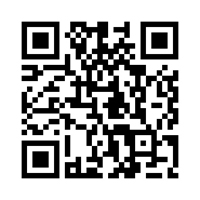PORTRAIT OF DISTANCE LEARNING FOR EARLY CHILDREN AGED 5-6 YEARS DURING THE COVID-19 PANDEMIC IN RA AL-MUAWANAH, CILANDAK BARAT
Abstract
This study aims to identify and obtain portrait information on the online teaching and learning process at home during the Covid-19 pandemic. Group B or children aged 5-6 years. This research uses qualitative research with descriptive method. The data collection techniques used are observation, interviews and documentation techniques. The data in this study were obtained from observations of parents, school principals, teachers, and children as primary data and interviews with parents, school principals, teachers and children and documentation collection as secondary data. The steps used by the researcher in analyzing the data are the first pre-field stage, then the implementation of the research and finally concluding the data. The results showed that (1) In the planning and implementation process of online learning for early childhood at RA Al-Muawanah, Cilandak Barat Village, the planning made by the principal and teachers had gone well. However, the reality on the ground is when parents do not carry out optimally and become less effective learning. The online learning process is carried out through zoom and google duo by utilizing groups on whatsapp, (2) In the online learning process parents experience problems or obstacles first, problems related to the internet, second, problems related to parental involvement in the online learning process, third , problems related to the patience of parents in guiding children during online learning, fourth, problems related to the limitations of EDUCATIONAL LEARNING TOOLS, (3) The solution to overcome the problems of online learning is first, the school provides free quota facilities for parents who use personal quotas, second, the school provides understanding to parents to ask their children to study at the nearest teacher's house, third, parents can give rewards or praise for the efforts of their children who have done online learning, fourth, teachers can design EDUCATIONAL LEARNING TOOLS or educational games that are more varied and not monotonous when playing it.
Full Text:
PDFReferences
Abidin Z, d. (2020). Efektivitas Pembelajaran Jarak Jauh Pada Masa Pandemi Covid-19. Research and Development Journal Of Education Vol.1, 134.
Agus Purwanto, d. (2020). Studi Eksploratif Dampak Pandemi Covid-19 terhadap Proses Pembelajaran Online di Sekolah Dasar. ournal of Education, Psychology, and Conseling, vol. 2, 7-8.
Aji, R. H. (2020). Dampak Covid-19 pada Pendidikan di Indonesia: Sekolah, Keterampilan dan Proses Pembelajaran. Jurnal Sosial & Budaya Syar-i, Vol.7, 397-398.
Anderson, T. (2011). The Theory and Practice of Online Lerning. Edmonton: AU Press.
Anggito, A. J. (2018). Metodologi Penelitian Kualitatif. Sukabumi: CV. Jejak.
Anita Wardani, Y. A. (2020). Analisis Kendala Orang Tua dalam Mendampingi Anak Belajar di Rumah pada masa Pandemi Covid-19. Jurnal Obsesi: Jurnal Pendidikan Anak Usia Dini vol.5, 773-774.
Arif Widodo, N. (2020). roblematika Pembelajaran Daring Dalam Perspektif Mahasiswa. Journal Elementary School Education, 103.
Budhianto, B. (2020). Analisis Perkembangan dari Faktor yang Mempengaruhi Keberhasilan Pembelajaran Daring . Jurnal AgriWidya, 15-16.
D.S. Bestiantono, d. (2020). How Students' Perspectives about Online Learning Amidthe Covid-19 Pandemic? Journal Studies in Learning and Teaching vol.1 , 134.
Diadha, R. (2015). Keterlibatan Orangtua Dalam Pendidikan Anak Usia Dini di Taman Kanak-Kanak. Jurnal Ilmu Pendidikan dan Pengajaran, 63.
Dr.Sugiyono, P. (2017). Metode Penelitian Kuantitatif, Kualitatif, dan R&D. Bandung: Alfabeta.
Emma Garcia, E. W. (2020, November 7). Covid-19 and Student Performance, Equity, and U.S. Retrieved from www.epi.org
F.D., W. A. (2020). Dampak Covid-19 terhadap Implementasi Pembelajaran Daring di Sekolah Dasar. Jurnal Ilmu Pendidikan Vol.2.
Haerudin, d. (2020). Peran Orangtua Dalam Membimbing Anak Selama Pembelajaran di Rumah Sebagai Upaya Memutus Covid-19. Artikel Universitas Singa Perbangsa, 2-4.
Hengki, P. K. (2019). Perencanaan Pembelajaran Pendidikan Anak Usia Dini Dalam Menghadapi Tantangan Revolusi Industri 4.0. Seminar Nasional Dharma Acarya ke-1 Tantangan dan Peluang Dunia Pendidikan di Era 4.0.13.
Ike Yustanti, D. N. (2019). Pemanfaatan E-Learning Bagi Para Pendidik di Era Digital. Makalah pada Seminar Nasional Utilization of Learning for Educators in Digital Era 4.0.
Kuntarto, E. (2017). Keefektifan Model Pembelajaran Daring Dalam Perkuliahan Bahasa Indonesia di Perguruan Tinggi. Journal Indonesian Language Education and Literature, 99-10.
Millati, N. (2020). Pembelajaran Daring pada siswa kelas IV MI Bustanul Mubtadin IAIN Salatiga. Skripsi IAIIN Salatiga, 10.
Mirzon Daheri, d. (2020). Efektivitas WhatsApp sebagai Media Belajar Daring. Jurnal Basicedu Vol.4, 776.
Muhammad Adnan, K. A. (2020). Online Learning Amid the Covid-19 Pandemic:: Students' Perspectives. Journal of Pedagogical Sociology and Psychoology,, 45.
Nguyen, T. (2018). The Effectiveness of Online Learning: Beyond No Significant Difference and Future Horizons. Journal of Online Learning and Teaching Vol.11, 310.
Nurhayati. (2020). Metode Pembelajaraan Daring/E-learnning yang Efektif. Skripsi Universitas Ganesha, 6.
Oktafia Ika H., S. S. (2020). Pembelajaran Daring sebagai Upaya Study from Home (SFH) Selama Pandemi Covid-19. Jurnal Pendidikan Administrasi Perkantoran (JPAP) Vol.8 No. 3, 498.
P., K. H. (2019). Perencanaan Pembelajaran Pendidikan Anak Usia Dini Dalam Menghadapi Tantangan Revolusi Industri 4.0. Seminar Nasional Dharma Acarya ke-1 Tantangan dan Peluang Dunia Pendidikan di Era 4.0.
Rohmawati. (2015). Efektivitas Pembelajaran. Jurnal Pendidikan Anak Usia Dini Vol.9.
Roman Andrianto P, d. (2020, juni 20). Faktor-Faktor Yang Mempengaruhi Kesuksesan Pembelajaran Daring Dalam Revolusi Industri 4.0. Retrieved from www.seminar-id.com
S.Maudiarti. (2018). Penerapan E- Learning di Perguruan Tinggi. Jurnal Perspektif Ilmu Pendidikan vol.32, 55.
Saifuddin Chalim, E. O. (2018). Peran Orangtua dan Guru dalam Membangun Internet sebagai Sumber Pembelajaran. Jurnal Penyuluhan, Vol.14 No.1.
Setyosari, P. (2014). Menciptakan Pembelajaran yang Efektif dan Berkualitas. Jurnal Inovasi dan Teknologi Pembelajaran, 23-24.
Sri Gusty, d. (2020). Belajar Mandiri Pembelajaran Daring di Tengah Pandemi Covid-19. Medan: Yayasan Kita Menulis.
Tabiin, A. (2020). Problematika Stay At Home Pada Anak Usia Dini Di Tengah Pandemi Covid-19. Jurnal Golden Age, 193.
UII. (2021, April). Agar Pembelajaran Daring Lebih Efektif. Retrieved from www.uii.ac.id
WHO. (2020). Retrieved from www.who.int.
Y. Bilfaqih, M. N. (2015). Esensi Pengembangan Pembalajaran Daring. Yogyakarta: Deepublish.
DOI: http://dx.doi.org/10.30829/raudhah.v10i1.1276
Refbacks
- There are currently no refbacks.

This work is licensed under a Creative Commons Attribution-NonCommercial-ShareAlike 4.0 International License.
 Jurnal Raudhah
Jurnal Raudhah

